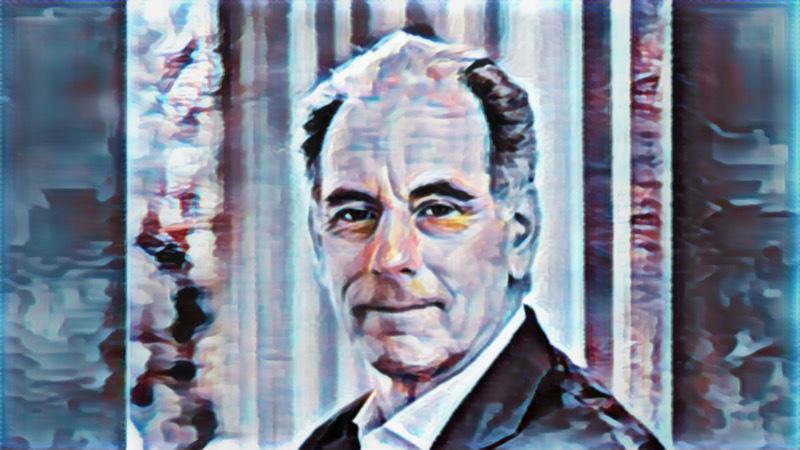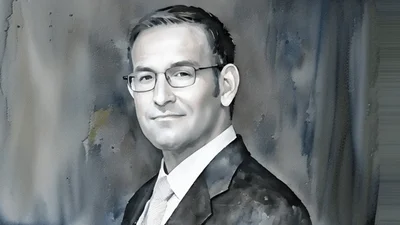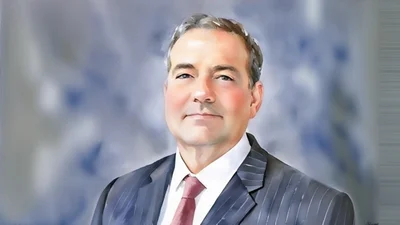Mark Clifford, president and board member of the Committee for Freedom in Hong Kong Foundation, is the author of The Troublemaker: How Jimmy Lai Became a Billionaire, Hong Kong's Greatest Dissident, and China's Most Feared Critic. He met with Federal Newswire to discuss Jimmy Lai’s life journey, as well as the implications of that journey for democracies and freedom.
According to Clifford, Jimmy Lai's story begins in tumultuous post-war China. Born into a wealthy family in 1948, Lai’s life turned upside down after the Communist Party's rise to power. His father fled to Hong Kong, leaving Lai and his sister to fend for themselves as their mother was sent to a labor camp. By age six, Lai was scrounging for food and survival in Mao’s China.
In one fateful moment, a traveler gave Lai a half-eaten chocolate bar at a railway station. The gesture sparked his fascination with the idea of Hong Kong. “I’m going to Hong Kong. It’s the land of chocolate,” Lai told his mother, who eventually let him leave amidst the horrors of the Great Chinese Famine.
At age 12, Lai arrived in Hong Kong, penniless and alone, where he slept on a factory table. Fifteen years later, he owned a factory and had become one of Hong Kong’s top garment manufacturers.
“He was an early pioneer in fast fashion,” Clifford notes.
Despite his success, Lai's restless entrepreneurial spirit led him into a new field–media–after the Tiananmen Square crackdown in 1989.
The Media Mogul and the Advocate for Democracy
Following the Tiananmen Square massacre, Lai recognized the power of media in promoting freedom and transparency. He transitioned from garments to founding Next Magazine and Apple Daily.
“He said, ‘Transparency, information, media—it’s all going to contribute to the reforms happening in China,’” Clifford explains.
Lai’s publications became the voice of Hong Kong’s pro-democracy movement, amplifying calls for reform while exposing government overreach. Lai’s entrepreneurial approach to media, Clifford says, was driven by a belief that “selling democracy” was not just a noble cause but also a business opportunity that set Lai apart from risk-averse competitors.
A Chinese Patriot Fighting for Freedom
While Lai is a staunch critic of the Chinese Communist Party (CCP), Clifford emphasizes his deep love for China.
“He’s no fan of the Communist Party, which destroyed his family… But he loved China. He thought that economic freedom would lead to political and social freedom, as it did in South Korea and Taiwan,” Clifford says.
Lai’s patriotism, however, clashed with Beijing’s vision for Hong Kong. In 2019, protests erupted, with millions demonstrating against a controversial extradition bill and the erosion of promised freedoms. Lai, though not a political leader, stood shoulder-to-shoulder with protesters.
“He was quite happy that the young people were taking over the movement… He just really wanted to show his solidarity,” Clifford says.
The Role of Faith
In the face of mounting adversity, Lai’s Catholic faith became a pillar of strength. Introduced to Catholicism by his wife, Theresa, Lai formally converted shortly after Hong Kong’s 1997 handover to China.
“It’s pretty clear he saw times were going to be tougher, and he needed some protection,” Clifford explains.
Faith has since become central to Lai’s life, particularly during his imprisonment. “As he got closer to prison and then as he went to prison, it became a central part of his life—his faith and his family,” Clifford says.
Imprisoned but Unbroken
Today, Lai remains in jail, facing charges under Hong Kong’s draconian National Security Law. His trial, marked by delays and repression, is emblematic of the city’s descent from one of the world’s great financial centers to a hub of authoritarian control.
“They’ve locked him up simply for practicing journalism, which I don’t believe is a crime,” Clifford says. He calls Lai’s imprisonment “a poverty of imagination” on the part of the CCP, which he believes cannot suppress Lai’s legacy.
Jimmy Lai has become more than a media mogul or billionaire. He is a symbol of resilience, a dissident fighting for democracy, and a patriot. As Clifford sums up, “The fact that he’s in jail tells you everything you need to know about what used to be one of the great financial and business centers of the world.”








